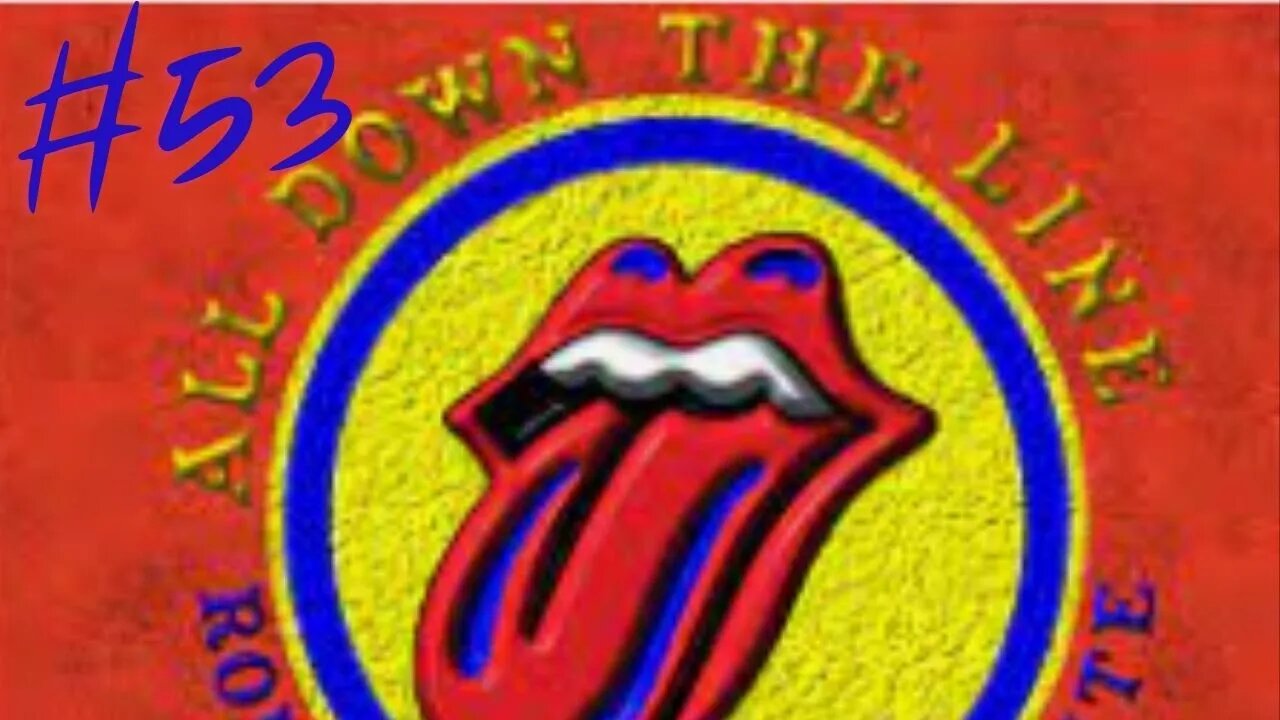Premium Only Content

All Down The Line # 53
Subscribe to the channel https://www.youtube.com/channel/UC9y0shORhjQZe1bs-W5_VeA?sub_confirmation=1
Please click the link below to read the complete backstory and watch the video for this song.
https://www.songfacts.com/facts/the-rolling-stones/all-down-the-line
I would like to thank Songfacts and Creative Commons for being my main source of information and urge you click these linksSongfacts is a website that provides information on songs, albums, and artists. They have a wide range of topics such as the Rolling Stones and their albums. The Rolling Stones is one of the most popular bands in history and Songfacts has information about all of their songs click They also provide a video of the song and a complete summery of story behind the song.Creative Commons is an American non-profit organization that provides free licenses for copyright protections. They are responsible for the Creative Commons license which allows people to use copyrighted material without asking permission from the original author.
Subscribe to the channel
https://www.youtube.com/channel/UC9y0shORhjQZe1bs-W5_VeA?sub_confirmation=1
Link to the song : https://www.youtube.com/watch?v=AlZ1o1EIA9s
This song is a great example of Mick Jagger taking on a persona, which he often did in his lyrics. Here, he sings from the perspective of a guy who is waiting for his girlfriend - a destitute, disheveled sort - to get out of work at the factory. It's quite a contrast to Jagger's reality: a glamorous rock star who often dated models.
Dave Mason, , played the mandolin on this song.
Ric Grech was brought in to play fiddle on this track. Grech was a violinist and bass player who was a member of the band Family in the '60s and went on to play in Blind Faith with Eric Clapton. He also played on Gram Parsons' solo albums in the '70s, and he appears on Ron Wood and Ronnie Lane's 1976 Mahoney's Last Stand project.
Drummer Charlie Watts: "On Factory Girl, I was doing something you shouldn't do, which is playing the tabla with sticks instead of trying to get that sound using your hand, which Indian tabla players do, though it's an extremely difficult technique and painful if you're not trained."
Guitarist .Keith Richards: "To me 'Factory Girl' felt something like Molly Malone, an Irish jig; one of those ancient Celtic things that emerge from time to time, or an Appalachian song In those days I would just come up and play something, sitting around the room. I still do that today."
Richards showed an unheard of degree of musical maturity and poetic sensitivity on his disturbing masterpiece, recorded shortly before the last bridges to Babylon sessions. The Rolling Stones released their thirteenth album, Bridges to Babylon, in 1997. The album was a success and it was the first time they had released an album of new material in seven years. The band had been touring extensively and they wanted to bring out new material to keep the fans entertained. Bridges to Babylon is a double album with some songs that are very different from one another. There are some songs that are reflective of their early sound and there are others that were influenced by the music of artists like Bob Dylan or Bruce Springsteen. This is what makes this album so interesting because there is such a wide range of different styles on offer here. It is hard to find a story about the back story of the Rolling Stones that is not conflicting. This is because every person who has ever been a part of the band has a different perspective on how it all happened. The only way to stop conflicting stories about the back story of the Rolling Stones is to talk to everyone who was in the band and get their perspectives. That way, you can get an accurate account of what happened.
-
 8:22
8:22
Russell Brand
10 hours agoThey want this to happen
153K336 -
 2:06:43
2:06:43
Jewels Jones Live ®
1 day ago2025 STARTS WITH A BANG! | A Political Rendezvous - Ep. 104
84K30 -
 4:20:41
4:20:41
Viss
10 hours ago🔴LIVE - PUBG Duo Dominance Viss w/ Spartakus
67.5K6 -
 10:15:14
10:15:14
MDGgamin
13 hours ago🔴LIVE-Escape From Tarkov - 1st Saturday of 2025!!!! - #RumbleTakeover
56.6K2 -
 3:54:19
3:54:19
SpartakusLIVE
9 hours agoPUBG Duos w/ Viss || Tactical Strategy & HARDCORE Gameplay
69.5K1 -
 5:54:54
5:54:54
FRENCHY4185
10 hours agoFRENCHY'S BIRTHDAY BASH !!! THE BIG 40 !!!
79.4K3 -
 1:23:33
1:23:33
Michael Franzese
18 hours agoThings to look forward to in 2025
97.3K47 -
 3:23:02
3:23:02
I_Came_With_Fire_Podcast
19 hours agoDefeating VICTIMHOOD: Advocacy, Resiliency, and Overcoming Abuse
103K19 -
 2:00:56
2:00:56
Game On!
1 day ago $10.35 earnedNFL Experts debate if Joe Burrow will make HISTORY in Week 18!
117K16 -
 2:07:57
2:07:57
InfiniteWaters(DivingDeep)
4 days agoHOW TO ENTER 2025 LIKE A BOSS!
45.9K1